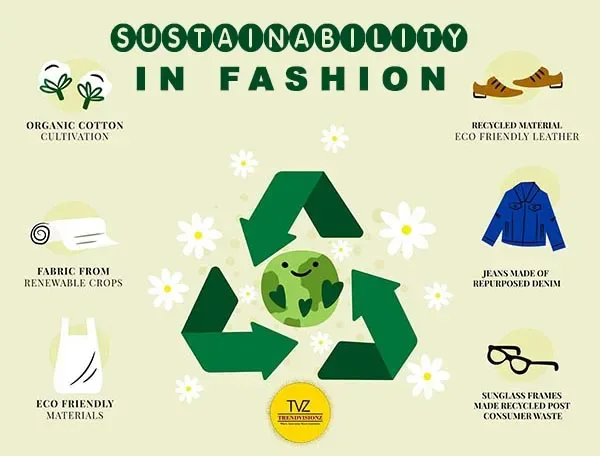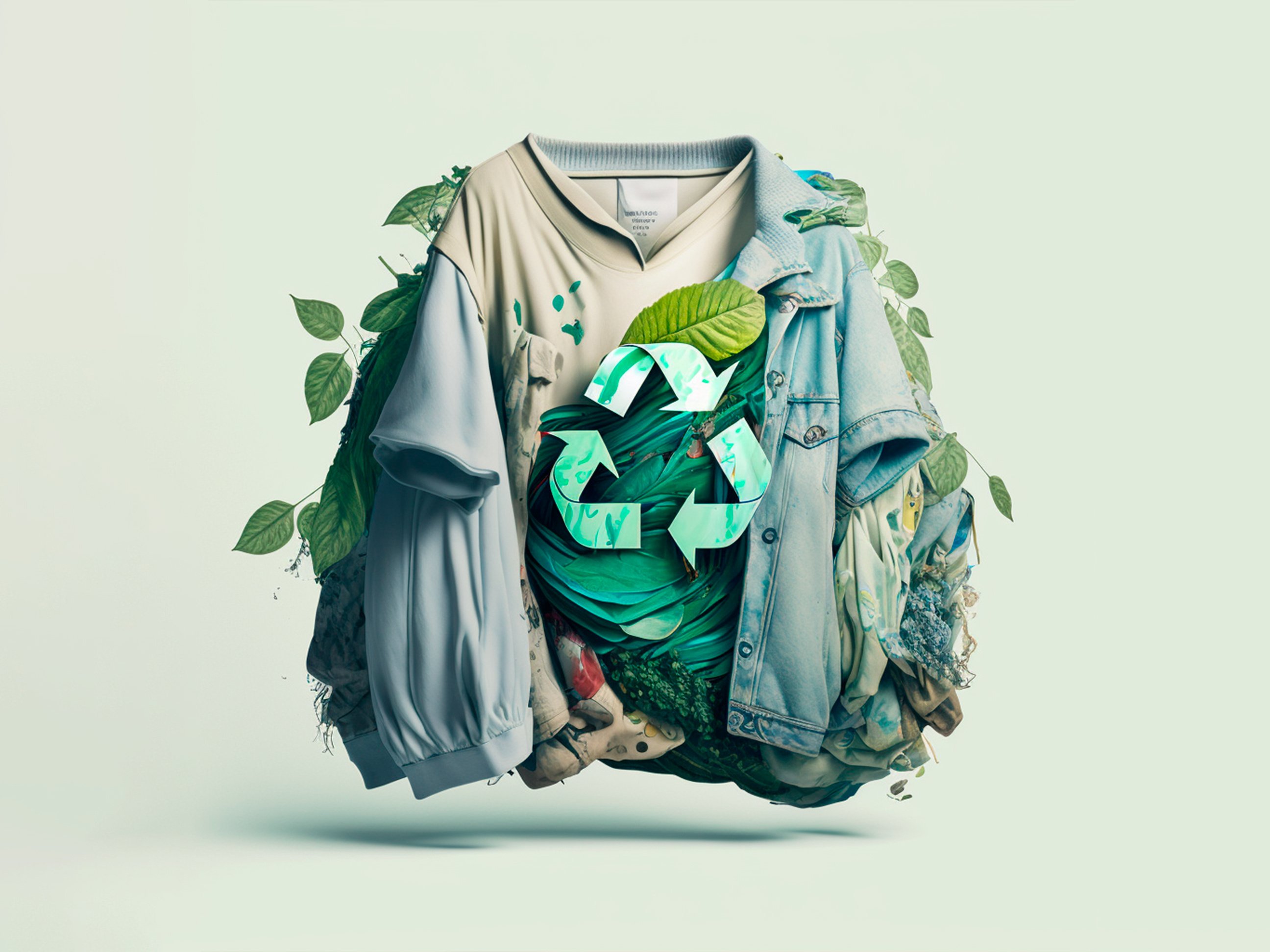Cape Town Sustainable Fashion: Ethical Apparel for a Better Earth
Cape Town Sustainable Fashion: Ethical Apparel for a Better Earth
Blog Article
Keep Ahead of the Curve by Discovering Innovative Fashion Patterns
In an industry as dynamic as style, remaining in advance includes more than just adhering to existing patterns-- it requires an expedition of technology. The convergence of innovation and style proclaims a new period of consumer involvement.

Welcoming Smart Textiles
Over the last few years, the fashion sector has actually observed a transformative change with the combination of clever textiles, an innovative advancement that mixes innovation with fabric. This development represents not only a blend of appearances and functionality yet also a considerable leap in the direction of sustainability and customization in vogue. Smart textiles, also understood as e-textiles, embed innovative electronics such as sensors and conductive threads within the fabric, allowing garments to connect with the wearer or the environment.
These fabrics are made to check physical specifications, such as heart rate or body temperature, giving real-time wellness analytics. Past wellness applications, clever textiles are additionally being used for flexible clothing, which can transform color or pattern in feedback to environmental stimuli, hence supplying a vibrant fashion experience.
Furthermore, the advancement of energy-harvesting fabrics that create power from motion or sunshine is leading the way for self-dependent wearable technology. This advancement is attracting eco mindful consumers and designers intending to reduce the eco-friendly footprint of style. As research study and growth in this field advance, clever fabrics are anticipated to end up being increasingly prevalent, reshaping the landscape of modern-day style with their multifunctional abilities.
The Increase of 3D Printing
Transforming the manufacturing landscape, 3D printing has arised as a game-changer in the fashion business. This advanced technology has allowed developers to push the limits of creative thinking, generating complex and tailored garments that were formerly unthinkable. By leveraging electronic design and additive production, 3D printing assists in the creation of complex geometries and patterns, allowing designers to experiment with new appearances and frameworks.
A notable advantage of 3D printing in vogue is its capacity to produce on-demand, decreasing waste and minimizing supply demands. This performance not only enhances production processes but also enables fast prototyping, enabling designers to bring their visions to life in a much shorter timeframe. Furthermore, 3D printing supports personalization somewhat unrivaled by traditional methods, providing one-of-a-kind styles and tailored fits tailored to individual customer preferences.
The rise of 3D printing has actually also democratized fashion, making it available to emerging designers who can currently fabricate high-quality pieces without significant economic investment in standard manufacturing facilities. As innovation remains to advancement, the garment industry is positioned to harness the full capacity of 3D printing, discovering new materials and techniques that will definitely redefine how fashion is developed and created.
Lasting Style Developments
As the garment industry comes to grips with journalism demand for environmental duty, sustainable style technologies have arised at the forefront of transformative change. The growing understanding of eco-friendly influence has sustained a shift towards more eco-conscious practices and products. Designers and brands are currently prioritizing sustainability, integrating methods that decrease waste and decrease carbon impacts.
One considerable growth is the surge of circular style, which emphasizes recycling and upcycling to extend the lifecycle of garments. This technique not only lowers waste but additionally encourages customers to embrace a much more conscious method to apparel consumption.
An additional development hinges on the adoption of innovative dyeing strategies that use natural dyes or waterless procedures, thereby decreasing the substantial quantities of water and chemicals commonly made use of in textile dyeing. Additionally, advancements in biotechnology have resulted in the development of lab-grown leather and textiles, using cruelty-free and environmentally friendly options to standard products. Through these pioneering efforts, the garment industry is making meaningful strides in the direction of a more sustainable future.

Tech-Integrated Clothing
Tech-integrated clothing stands for a cutting-edge combination of fashion and technology, improving just how people engage with their clothes. This ingenious domain is noted by the incorporation of smart textiles and embedded digital components, enhancing both functionality and aesthetic charm. From physical fitness trackers embedded in sportswear to heated jackets helpful resources regulated by means of smartphone apps, tech-integrated clothing offers consumers extraordinary comfort and adaptability.
Introducing brands are driving this fad, concentrating on developing garments that react to environmental stimulations or individual commands. For example, some garments can transform shade or pattern in reaction to temperature level shifts, while others incorporate biometric sensors to monitor wellness metrics like heart rate or stress and anxiety degrees. The smooth assimilation of innovation right into textiles also expands to environmental sustainability, with efforts to establish self-cleaning fabrics or garments that adapt to climate condition, therefore minimizing the need for numerous layers.
In addition, the advent of wearable innovation is not just restricted to clothing but reaches devices like watches and eyeglasses, more expanding the extent of tech-integrated style. As the market proceeds to introduce, the possibility for customization and customization in clothing grows, using consumers unique, tech-enhanced fashion experiences that provide to their private needs and choices.
Future of Virtual Style
In recent times, the future of digital style has arised as a transformative pressure within the market, leveraging improvements in electronic modern technology to redefine exactly how fashion is produced, experienced, and eaten. By incorporating augmented truth (AR), digital fact (VIRTUAL REALITY), and 3D design devices, developers can now craft immersive and interactive experiences that transcend typical style limits. Digital fashion permits the production of garments that exist solely in digital settings, supplying countless possibilities for innovation without the restrictions of physical manufacturing.
This electronic shift not only presents possibilities for imaginative expression however additionally addresses sustainability issues inherent in typical fashion techniques. Cape Town Sustainable Fashion. By removing the demand for physical resources, digital style reduces waste and decreases carbon footprints. Moreover, the surge of online style aligns with the enhancing customer demand for distinct and personalized experiences, as virtual garments can be personalized and tailored to specific choices easily

Conclusion
The fashion business's future depend on the integration of innovative modern technologies and lasting practices - Cape Town Sustainable Fashion. Smart textiles and tech-integrated apparel are enhancing capability, while 3D printing provides possibilities for personalization and waste reduction. Sustainable style, via circular strategies and environment-friendly materials, demonstrates a dedication to ecological stewardship. Furthermore, virtual fashion is poised to redefine consumer communications. Adjusting to these patterns is essential for brands looking for to continue to be affordable and pertinent in this quickly progressing landscape.
In recent years, the fashion market has actually experienced a transformative change with the integration of clever textiles, a cutting-edge advancement that blends innovation with material.As the fashion industry grapples with the pressing need for environmental responsibility, lasting fashion advancements have arised at the forefront of transformative adjustment.In current years, the future of online fashion has emerged as a transformative pressure within the sector, leveraging developments in electronic technology to redefine how fashion is developed, experienced, and consumed. visite site The increase of virtual style aligns with the increasing consumer demand for customized and one-of-a-kind experiences, as online garments can be personalized and tailored to specific preferences with convenience.
The style sector's future lies in the combination of sustainable practices and innovative modern technologies.
Report this page